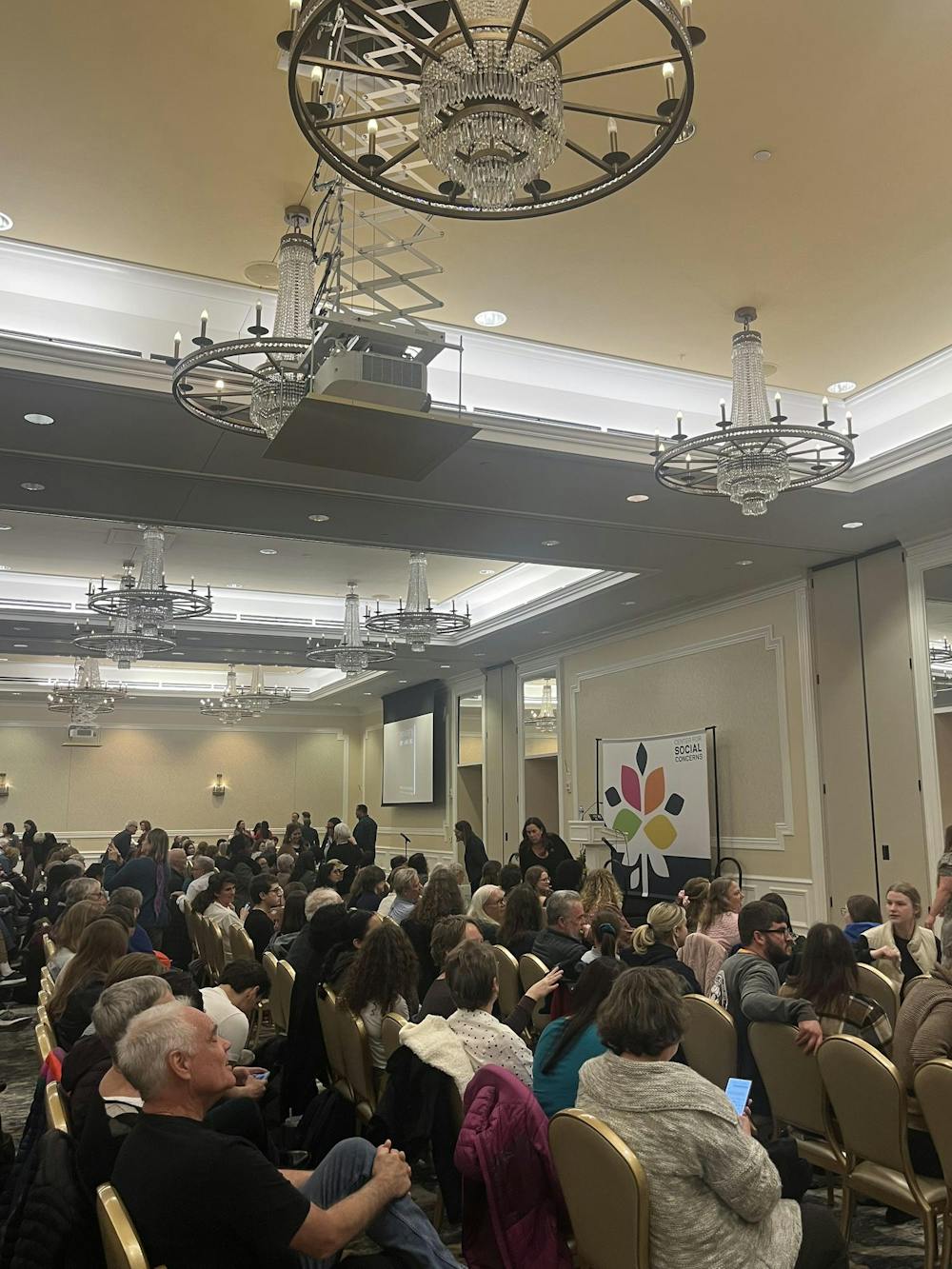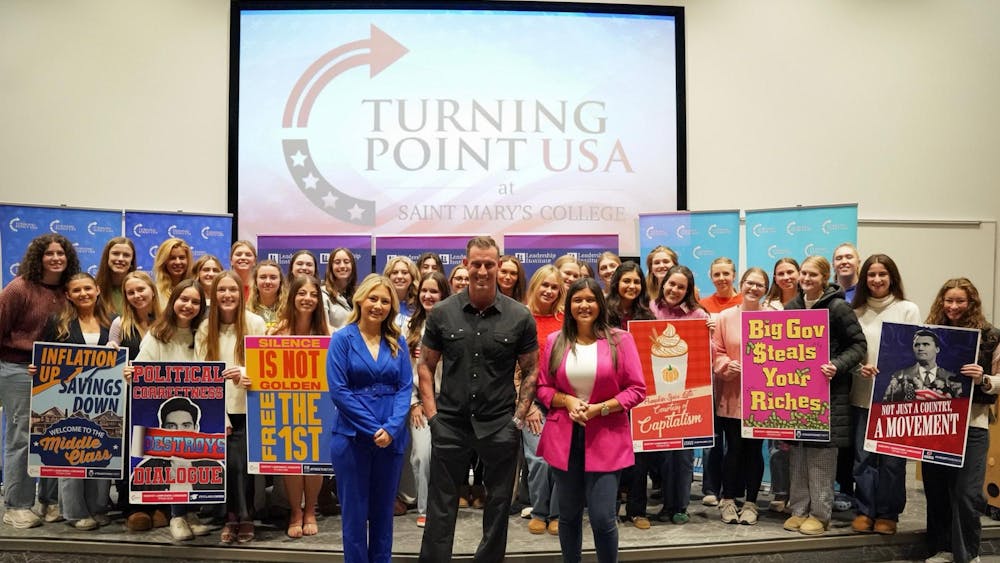“Why all this American poverty? I’ve learned that this question requires a different approach,” Pulitzer Prize-winning sociologist and author Matthew Desmond writes in the prologue his latest book. “To understand the causes of poverty, we must look beyond the poor. Those of us living lives of privilege and plenty must examine ourselves. Are we — we the secure, the insured, the housed, the college-educated, the protected, the lucky — connected to all this needless suffering?”
Desmond raised those questions in a visit to campus Thursday to a bustling Morris Inn Smith Ballroom to speak about the book, “Poverty, by America,” released March 2023. The book has been well-received, and featured on two of president Barack Obama's reading lists.
The lecture is part of the Poverty Studies Distinguished Lecture series, presented by the Center for Social Concerns, the department of sociology and the Initiative on Race and Resilience.
Desmond is a professor of sociology at Princeton University, the author of four books and contributor to the New York Times. His 2016 book “Evicted: Poverty and Profit in the American City,” which won the Pulitzer Prize, National Book Critics Circle Award, Carnegie Medal and PEN/John Kenneth Galbraith Award for nonfiction.
Research and the influence of “Evicted” prompted Desmond to speak with policymakers across the country, realizing the need to collect national data on eviction, to adequately address fundamental questions about American poverty. These national discussions resulted in Desmond’s founding of The Eviction Lab, a Princeton-based research institute with aims to conduct research on and advocate for the implementation of stable, affordable housing, “promoting economic mobility, health and community vitality,” according to the institute’s site.
While in “Evicted,” Desmond took a personal approach, following eight families in Milwaukee as they struggle with the threat of losing their homes, “Poverty, By America,” seeks to answer why these families are subject to such economic turmoil, widening the lens to examine the entire United States. Exploring how Americans knowingly and unknowingly keep poor people poor, Desmond argues in his book that it is financially secure who exploit the poor, designing a welfare state that gives the most to those who need the least.
Desmond, who grew up in a small town in Arizona, began by sharing how he grew up facing the harsh reality of American poverty, how his family was forced to declare bankruptcy.
The author touched on how today, despite increased government spending, poverty has been steadfast and the poor continue to be exploited. Yet, rather than focus on the poor, Desmond compelled those attending to examine the issue from a different approach. Quoting novelist Tommy Orange, he said, “Kids are jumping out the windows of burning buildings, falling to their deaths. And we think the problem is that they're jumping,’ doesn’t that represent poverty in America?”
Desmond left the audience with encouragement, urging those who wish to fight this cause to advocate for the strength of labor unions and work with community leaders to improve legislation on housing and zoning laws.
“We build laws around our communities. These walls are made out of laws … we need to find ways to empower the poor, to build power in our communities,” he said. “If you’re a student fed up with insipid justifications and stories with how things are the way that they are, this is your fight.”










